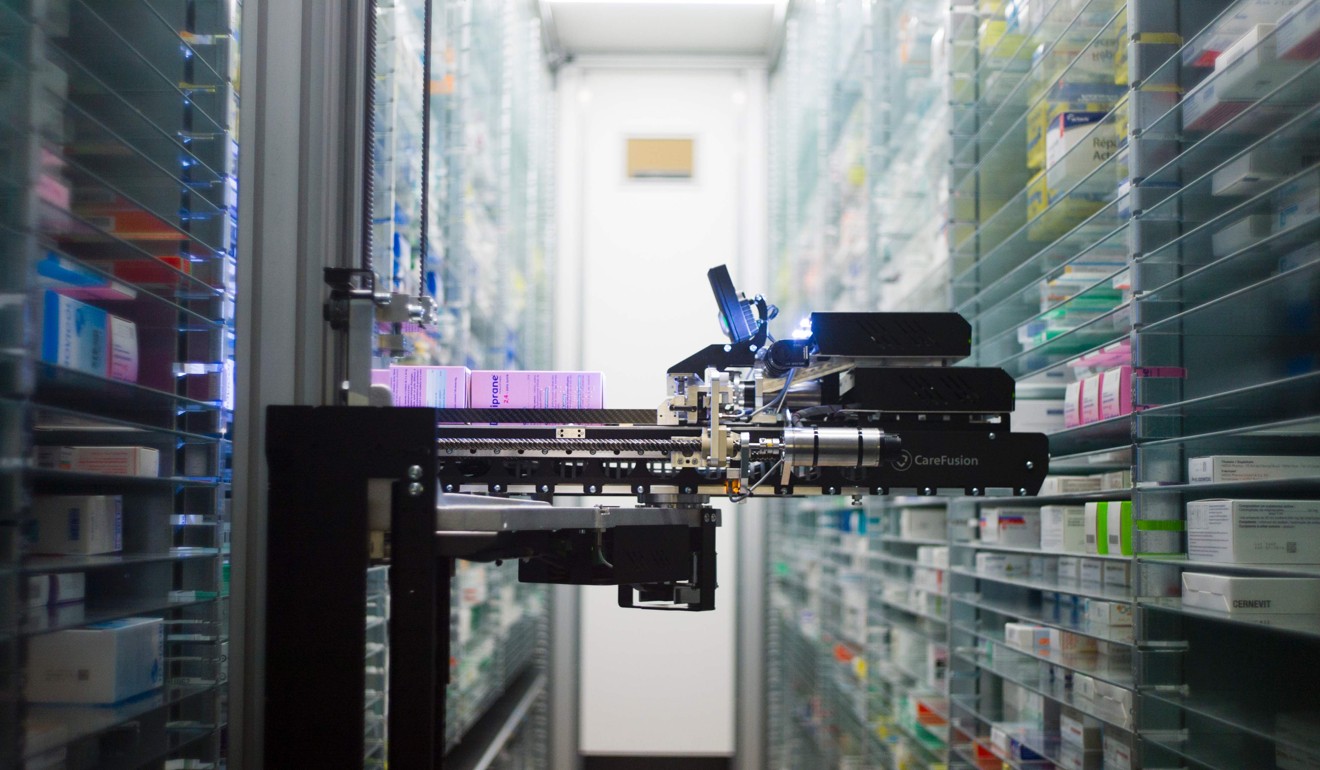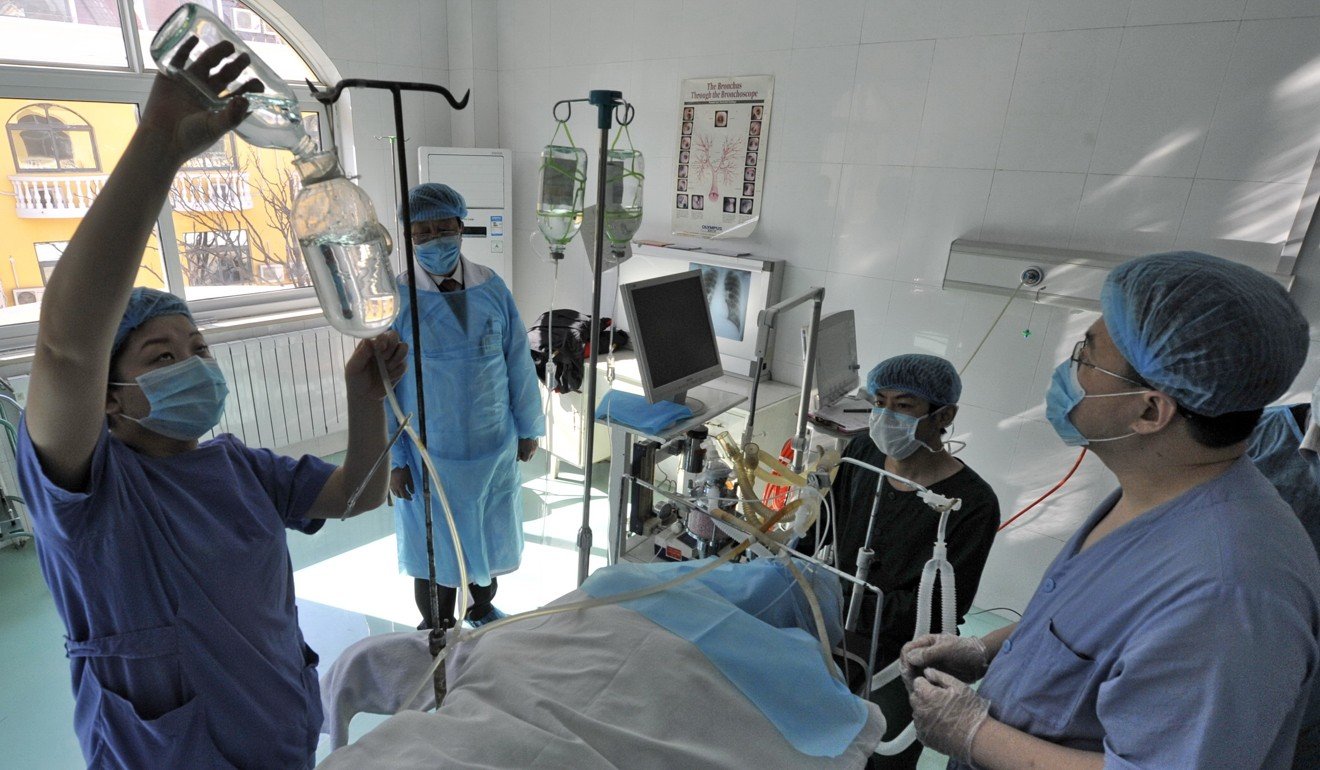
Artificial intelligence use poised for rapid growth in Chinese hospitals
Alibaba Health to partner with three hospitals to launch its first AI medical lab, as an ageing country looks to advanced technology to alleviate an acute imbalance of resources nationwide
Alibaba Health is partnering with three leading mainland hospitals to launch its first artificial intelligence (AI) medical lab, as an ageing China looks to advanced technology to alleviate what has become an acute imbalance in medical resources distribution, according to officials.
The project includes setting up a public platform to support smart diagnostics and assist clinical decisions, Wang Lei, CEO of Alibaba Health told a major Cloud Conference in Hangzhou on Friday.
The blockchain-technology-enabled platform is also expected to serve as a safe data sharing network among hospitals.

“Thanks to the Internet of Things and rapid advances in cloud computing, health care has become a phenomenon industry,” said Wang in Hangzhou on Friday, where the company is based.
The health care arm of the e-commerce giant signed cooperation deals with two affiliate hospitals of Zhejiang University, and with Xinhua Hospital, which is affiliated to Shanghai Jiao Tong University School of Medicine, on the sidelines of the forum.
“Quality medical resources are concentrated in big cities, while medical services in many other parts of China show inadequate capability,” said Wang Weilin, director of the First Affiliated Hospital of Zhejiang University, and vice-chairman of Chinese Hospital Association.
“AI technology can help address such an imbalance and improve screening of high-risk diseases.”
China has seen explosive growth of chronic diseases in recent years, with roughly 110 million Chinese now with diabetes, and another 330 million suffering from hypertension, or high blood pressure.
The move comes after Alibaba Health unveiled “Doctor You” in July, an AI diagnostic service solution which can be used to read CAT scans to identify inflammatory cells in human organs, for what can be an early indicator of cancer.
According to consultancy Frost&Sullivan, AI has the potential to improve the outcomes of medical treatment by 30 to 40 per cent, and reduce costs by as much as 50 per cent.
Health care has become a heated battlefield in the AI race among China’s internet trilogy of Alibaba, Baidu, and Tencent, while they aim to catch up with US predecessors like IBM and Google.

Social networking and entertainment giant Tencent has led in the latest two funding rounds of Practo, an Indian start-up that helps users locate doctors and health care information.
Last year, search engine giant Baidu launched an AI-powered chatbot that can communicate with patients and provide diagnosis advice to doctors.
Health care spending now accounts about 5 per cent of China’s GDP, compared to the level of about 10 per cent in developed countries such as US and Japan.
Alibaba owns the South China Morning Post.

